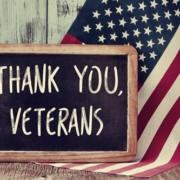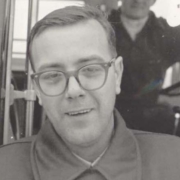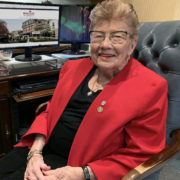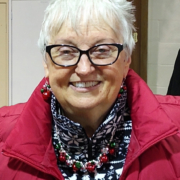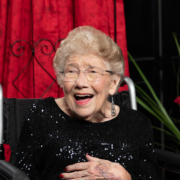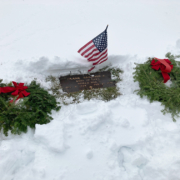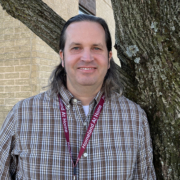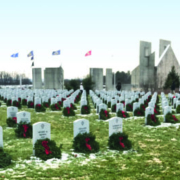‘Vet to Vet’ program brings Homeland’s Veterans together for friendship and shared memories.
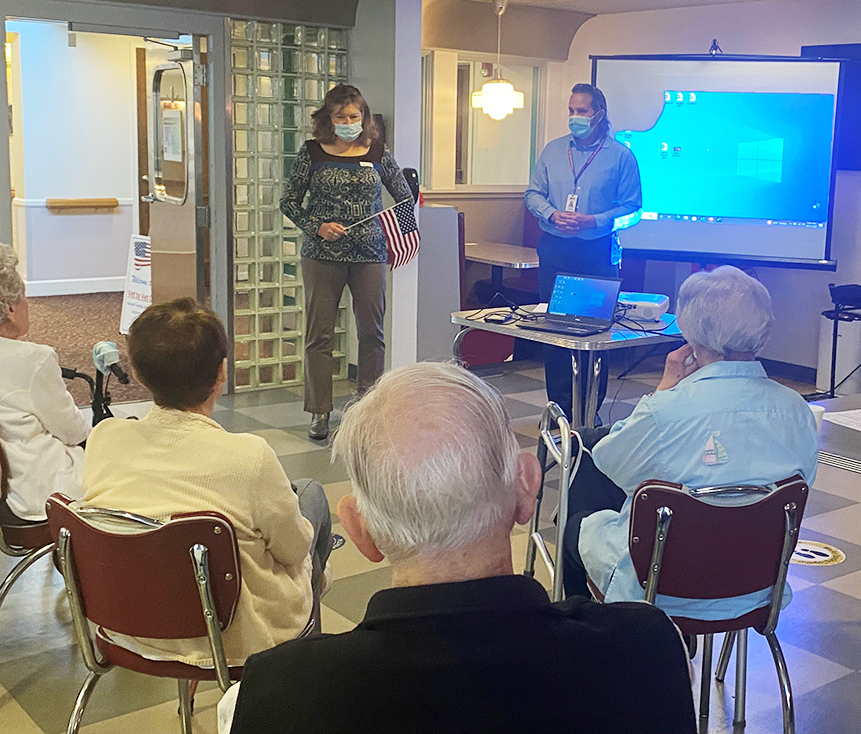 Bob Timpko appeared lost in thought as his fellow Veterans commented after seeing a short film depicting a soldier’s first-hand account of fighting in World War II’s Battle of the Bulge.
Bob Timpko appeared lost in thought as his fellow Veterans commented after seeing a short film depicting a soldier’s first-hand account of fighting in World War II’s Battle of the Bulge.
After the account of Germany’s last-ditch effort to stop the allied advance into their country in mid-December 1944, many sang “You’re a Grand Old Flag,” and a few talked about their time in the military or their family member’s service.
“I went into the Marines because it was the toughest one,’’ said Bob Timpko, who served from 1958-62, followed by a career in sales. “I wanted to serve, and there was also a draft at the time, so I joined. They helped me grow.’’
Welcome to the Vet to Vet Café, where Veterans and family members of those who served have a chance to talk and share their memories. The monthly gathering, held in Homeland Center’s 1950s-style Olewine Diner, offers these residents an opportunity to connect with others who understand the camaraderie and sacrifices of military service.
The program initially started with Homeland Hospice, an outreach program that cares for patients in the comfort of their homes or wherever they live. Homeland Hospice embraced the program as part of its work with We Honor Veterans, which offers hospices and community organizations guidance on assisting veterans.
Homeland Hospice Chaplain Todd Carver, who also served as a chaplain in the Army reserves, said the military culture is unique, and the Vet to Vet program gives Homeland Center residents who served the opportunity to connect with others who understand what they are feeling.
“There can be an emotional cost associated with military service; what they did 40 or 50 years ago can still affect the person they are all these years later,’’ Carver said. “Vet to Vet lets them know they are not alone and they can share their stories and experiences.’’
Another way the program recognizes Veterans is through the “pinning ceremony,’’ in which Homeland residents and Hospice patients receive a pin and certificate reflecting the military branch in which they served. They also receive a star cut from a decommissioned American flag.
Carver said the ceremony is often emotional and that, as someone who served, it means a lot to him when he salutes his fellow Veteran and thanks them for helping protect the country.
“I’ve spent a significant portion of my life serving that particular population, and I feel the connections and the experiences I had are transferable and relatable, even to those who are my seniors,’’ Carver said. “It’s a common ground.’’
Laurie Murry, Homeland Hospice’s volunteer coordinator, said learning how to relate to patients and residents is crucial, which is why Homeland embraced Veteran-related programs.
“The Veteran community really has its own language and culture, and to truly understand it, you either have to have served or educate yourself so you can better interact with the patients,’’ Murry said.
“We found that often Veteran patients have a unique set of issues they may deal with at the end of life; perhaps they’ve had trauma or PTSD or have not dealt with an incident that occurred during combat,’’ she said. “With education and support, we’re able as civilians to understand better and help them more.’’
If you are interested in spending time as a volunteer for Homeland Center or Homeland at Home, please call Homeland Hospice at (717) 221-7890 and ask for Laurie Murry.

